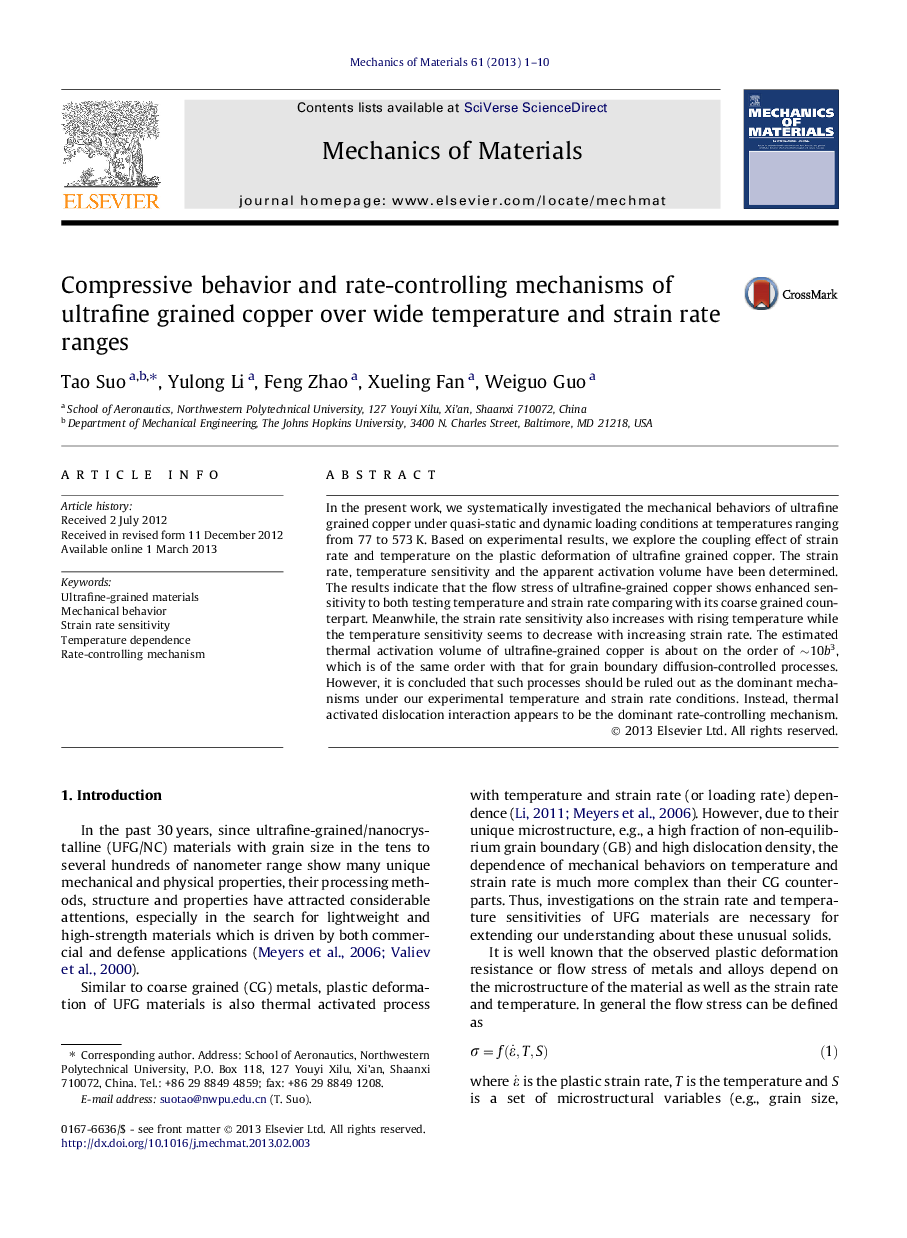| Article ID | Journal | Published Year | Pages | File Type |
|---|---|---|---|---|
| 799796 | Mechanics of Materials | 2013 | 10 Pages |
In the present work, we systematically investigated the mechanical behaviors of ultrafine grained copper under quasi-static and dynamic loading conditions at temperatures ranging from 77 to 573 K. Based on experimental results, we explore the coupling effect of strain rate and temperature on the plastic deformation of ultrafine grained copper. The strain rate, temperature sensitivity and the apparent activation volume have been determined. The results indicate that the flow stress of ultrafine-grained copper shows enhanced sensitivity to both testing temperature and strain rate comparing with its coarse grained counterpart. Meanwhile, the strain rate sensitivity also increases with rising temperature while the temperature sensitivity seems to decrease with increasing strain rate. The estimated thermal activation volume of ultrafine-grained copper is about on the order of ∼10b3, which is of the same order with that for grain boundary diffusion-controlled processes. However, it is concluded that such processes should be ruled out as the dominant mechanisms under our experimental temperature and strain rate conditions. Instead, thermal activated dislocation interaction appears to be the dominant rate-controlling mechanism.
► We test compressive behavior of UFG-Cu in wide temperature and strain rate ranges. ► Strain rate, temperature sensitivity and activation volume are determined. ► Forest dislocation intersection dominates plastic deformation of UFG-Cu. ► Viscous drag plays a role when UFG-Cu deforms at high strain rates.
